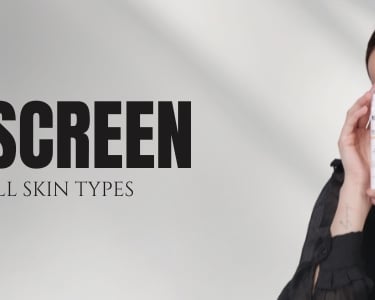FIRST TIME BUYER ? - Use Code FIRSTTIME to enjoy 5% additional discount on entire store
Why Clariv Serumr’s Dermatologist-Tested Sunscreen Is the Smartest Choice for Advanced UV Protection
Blog post description.
7/25/20253 min read


Dermatologist-Tested Sunscreen with Advanced UV Protection: The Smartest Skincare Choice You Can Make
Sun damage isn’t always visible—but it’s always happening. Whether you’re basking at the beach or walking to your car, your skin is constantly exposed to harmful UV rays. That’s why choosing a dermatologist-tested sunscreen with advanced UV protection is one of the most important decisions you can make for your skin's long-term health.
In this post, we’ll break down what “dermatologist-tested” really means, what sets advanced UV protection apart, and how to find the best sunscreen for your unique skin type.
Why Sun Protection Is a Daily Must
Contrary to popular belief, sunscreen isn’t just for summer or sunny days. Up to 80% of UV rays can penetrate clouds, and even indoor light and screens can contribute to skin damage over time. Without proper protection, UV exposure can lead to:
Premature aging (wrinkles, sagging skin)
Sunspots and uneven pigmentation
Increased risk of skin cancer
The solution? Daily sunscreen use—with the right kind of formula.
What Does “Dermatologist-Tested” Mean?
A dermatologist-tested sunscreen has been evaluated by skin care professionals for safety, effectiveness, and skin compatibility. This means:
It’s been reviewed for potential allergic reactions
It’s typically gentle on sensitive and acne-prone skin
It meets higher clinical standards for performance and safety
While not every “dermatologist-tested” label means it's perfect for everyone, it gives extra peace of mind that the product is trusted by skin health experts.
What Is Advanced UV Protection?
Not all sunscreens offer the same level of defense. Basic SPF only blocks UVB rays (responsible for burns), but advanced UV protection includes:
✅ Broad-Spectrum Coverage: Protects against both UVA (aging) and UVB (burning) rays
✅ Photostable Ingredients: Don’t break down quickly in the sun
✅ Antioxidants: Help fight free radicals that accelerate aging
✅ Blue Light & Infrared Defense: Helps guard against screen-related and heat-induced damage
This type of protection is especially important if you spend a lot of time outdoors, use digital devices frequently, or want to prevent signs of aging.
Benefits of Using a Dermatologist-Tested, Advanced Formula
Choosing a sunscreen with both dermatologist approval and advanced protection gives you:
Peace of mind: Backed by professional testing
Improved skin compatibility: Great for sensitive or acne-prone skin
Long-term skin health: Fights premature aging and damage
Enhanced daily wear: Lightweight, non-greasy formulas that won’t clog pores
Protection beyond the sun: Includes defense against modern skin stressors like pollution and blue light
How to Choose the Right Sunscreen
Look for these key features on the label:
FeatureWhy It MattersSPF 30 or higherBlocks at least 97% of UVB raysBroad-spectrumProtects against UVA and UVBFragrance-free & hypoallergenicIdeal for sensitive skinNon-comedogenicWon’t clog poresWater-resistantGreat for sports, swimming, and sweating
Frequently Asked Questions (FAQ)
Q1: What’s the difference between UVA and UVB rays?
A: UVA rays penetrate deeper into the skin and contribute to premature aging and wrinkles, while UVB rays cause sunburn. Both can lead to skin cancer, which is why broad-spectrum sunscreen is essential—it protects against both types.
Q2: Is dermatologist-tested sunscreen better for sensitive skin?
A: Yes. Dermatologist-tested sunscreens are generally formulated to be gentle and less likely to cause irritation, making them a safer choice for sensitive, acne-prone, or allergy-prone skin.
Q3: What SPF level should I use daily?
A: Dermatologists recommend using SPF 30 or higher for daily use. If you're spending extended time outdoors, sweating, or swimming, opt for SPF 50+ and reapply every 2 hours.
Q4: Can I wear sunscreen under makeup?
A: Absolutely. Look for lightweight, non-greasy formulas that absorb quickly and won’t pill under foundation or concealer. Many advanced sunscreens are designed to double as makeup primers.
Dermatologist Tip:
“Think of sunscreen as your skin’s daily armor. The right formula not only protects you—it can also help correct past damage over time.”
— Dr. Alexis Moore, Board-Certified Dermatologist
Final Thoughts
If you’re serious about skincare, sunscreen should be non-negotiable. And not just any sunscreen—choose one that’s dermatologist-tested and formulated with advanced UV protection. It’s a small step that makes a huge difference, protecting your glow now and for years to come.
info@clariv.in
+91-92204-02087
